Posted on 1/30/2026
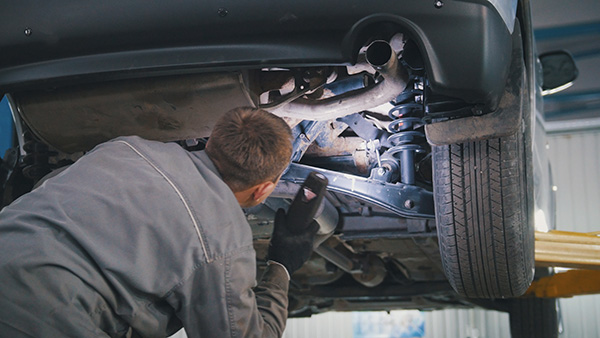
Worn shocks and suspension parts rarely announce themselves with one big, obvious failure. More often, the car slowly starts to feel a little less settled, a little less confident, and you adapt without realizing it. Then you hit a rough stretch of road, a sudden lane change, or a wet off-ramp, and the vehicle reacts in a way that feels sketchier than it should. If you have been noticing small changes in ride and handling, these are the safety-related ways suspension wear can show up. 1. Longer Braking Distances From Excessive Front-End Dive When shocks are weak, the front of the vehicle can dive harder under braking, which shifts weight too quickly and unsettles the tires. That weight transfer can reduce how evenly your tires grip the road, especially if the pavement is uneven or damp. You might still stop, but it can take more distance and feel less controlled. It also puts extra strain on brakes and tires, which can compound the problem over time. 2. Mo ... read more
Posted on 12/19/2025
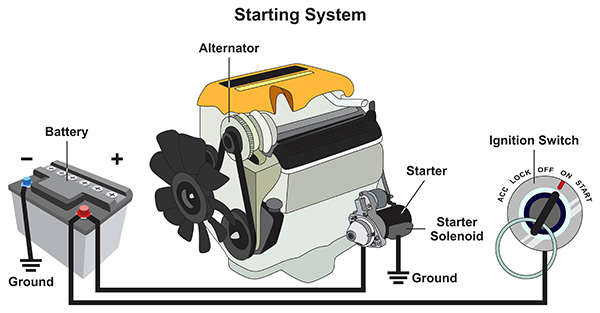
When your car hesitates to start, it is natural to wonder whether the battery is dying or the starter is failing. Both problems can leave you stuck, and the symptoms can feel very similar. Knowing the typical clues for each makes it easier to explain what is happening and avoid guessing at parts. Why Battery and Starter Problems Get Mixed Up The starting system is a chain: the battery provides power, the cables carry it forward, and the starter motor turns the engine fast enough for it to fire. If any link is weak, you may hear slow cranking, clicking, or silence when you turn the key, which is why so many different failures feel the same. From a technician’s point of view, the big questions are how fast the engine cranked, what the lights did, and whether a jump-start changed anything; those details usually point us toward battery, cables, or starter before we ever remove a part. How a Weak Battery Shows Itself Batteries tend to fade gradual ... read more
Posted on 11/28/2025
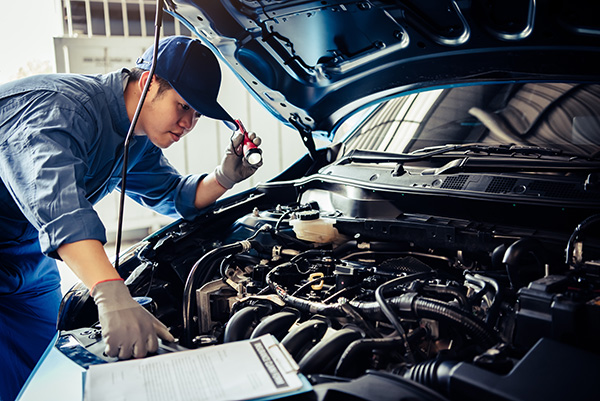
A few quick driveway checks can keep your Honda feeling tight, quiet, and dependable between services. You do not need special tools, just a bit of patience and a methodical approach. Here are five simple inspections any owner can do to catch problems early and save a trip back for rework later. 1. Tire Pressure, Tread, And Rotation Cues Set pressures first thing in the morning, using the sticker inside the driver’s door. Aim for equal pressures side to side, and recheck after large temperature swings since cool nights can drop a few psi. Inspect the tread for even wear across each tire. Feathering at the edges hints at alignment drift, while cupping suggests weak shocks or overdue rotations. Use a coin to measure depth and check all four tires, not just the fronts. If your steering wheel sits off-center on straight roads or the car drifts on a flat lane, note it for your technician. 2. Engine Oil Level And Condition With the engine off and ... read more
Posted on 10/31/2025
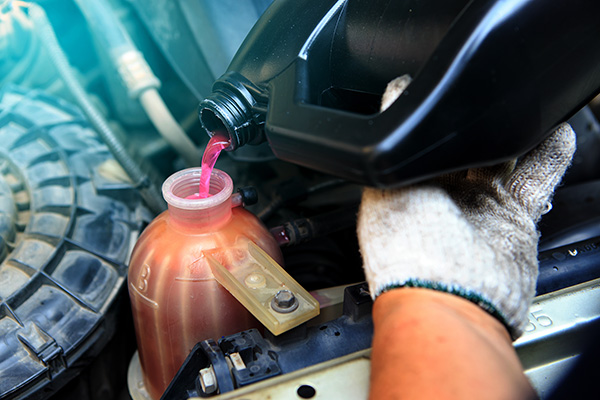
Your engine generates intense heat every time you drive, and it relies on a healthy cooling system to keep temperatures in check. At the heart of that system is the coolant, which circulates through the engine, radiator, and heater core to absorb and dissipate heat. Over time, this fluid becomes contaminated, loses its protective properties, and can even start to damage the very system it's supposed to protect. That’s where a coolant flush comes in. While it may not sound urgent, flushing your coolant regularly is one of the best ways to extend the life of your engine and prevent expensive repairs. What Coolant Does for Your Engine Coolant, also known as antifreeze, is a mixture of water and chemical additives designed to absorb heat and prevent freezing in cold temperatures. It also contains rust inhibitors and lubricants that protect metal surfaces and help keep components like the water pump operating smoothly. Without proper coolant circulation, your ... read more
Posted on 9/26/2025
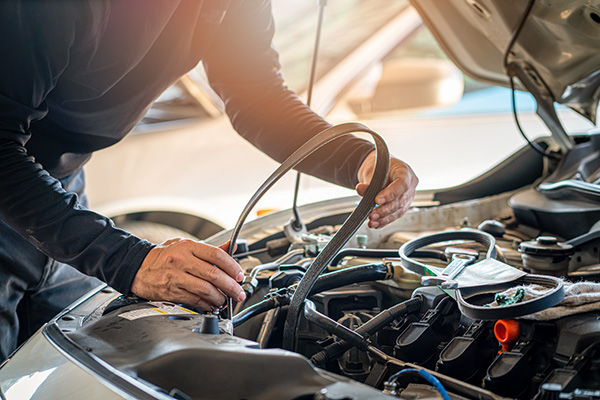
If your vehicle is due for a timing belt replacement, it’s one of the most critical maintenance services you can’t afford to delay. But replacing the belt alone is only part of the job. Several other components work alongside the timing belt, and if any of them fail later, you could be stuck paying for the same labor all over again. That’s why timing belt service is bundled with additional parts. Doing it right the first time will save money and prevent future engine damage. Let’s explore what else should be replaced when the timing belt comes off. Why Timing Belt Replacement Is So Important Your timing belt keeps the crankshaft and camshaft turning in sync so that your engine’s valves and pistons operate in harmony. If the belt snaps or skips a tooth, your engine can lose timing instantly. In interference engines, this usual ... read more
Posted on 8/29/2025
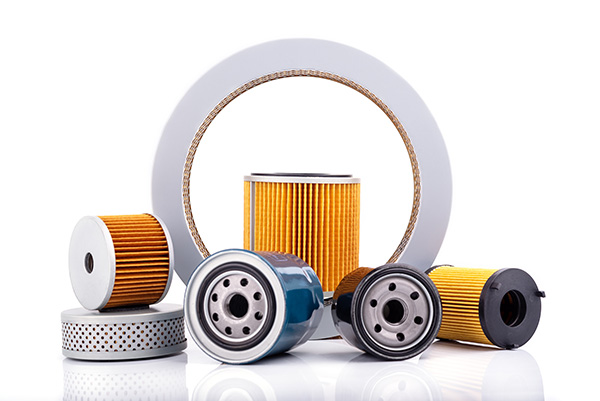
Your vehicle might look simple from the outside, but under the hood and throughout its systems, it relies on several types of filters to keep everything running. Each filter plays a specific role in protecting the engine, cabin air quality, or fuel system from harmful debris and contaminants. Skipping filter maintenance can lead to poor performance, reduced efficiency, and even costly repairs. Knowing what each filter does and when to replace it will help you keep your car in top shape. The Engine Air Filter Your engine air filter’s main job is to keep dirt, dust, and other particles out of the engine. The engine needs clean air to mix with fuel for efficient combustion. If the filter becomes clogged, airflow is restricted, which can cause sluggish acceleration, lower fuel economy, and increased emissions. In dusty environments or areas with high pollen, the filter may clog faster and require more frequent replacement. Most manufacturers recommend checking th ... read more
Posted on 7/25/2025
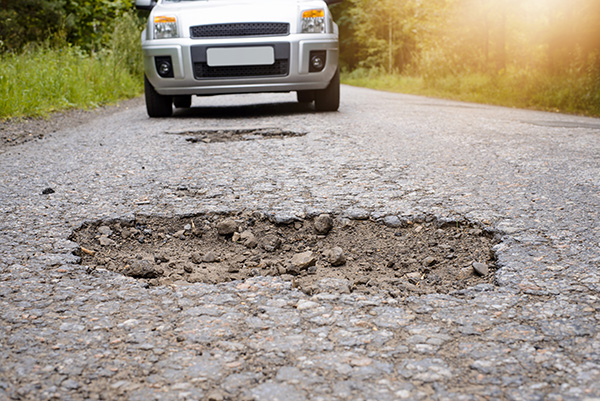
Potholes are an unfortunate part of everyday driving, especially in regions with harsh winters and heavy traffic. These road hazards can sneak up on you and sometimes feel unavoidable. While it might seem like hitting a pothole now and then is just an annoyance, it can actually cause significant and sometimes expensive damage to your vehicle. So, how bad is it to drive through potholes? Suspension and Alignment Damage Your vehicle’s suspension system is designed to absorb bumps and keep your ride smooth. When you hit a pothole, especially at higher speeds, the sudden jolt can put a lot of stress on components like shocks, struts, control arms, and ball joints. Repeated pothole impacts can knock your wheel alignment out of spec. Misalignment might not be obvious at first, but can cause uneven tire wear, poor handling, and reduced fuel efficiency. You may also notice your steering wheel pulling to one side or vibrating at higher speeds. Tire and Wheel P ... read more
Posted on 6/27/2025
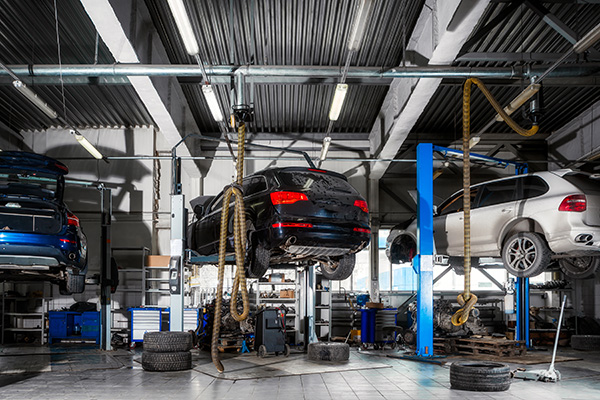
Summer brings longer days, weekend road trips, and, of course, rising temperatures. But while the sun may feel great for vacationers, it can be hard on your vehicle. High heat affects everything from your battery to your tires, and skipping seasonal maintenance could leave you stranded at the worst possible time. Our technicians at Nerger’s Auto Express know exactly what New Jersey drivers face during the summer months. With the right maintenance now, you can enjoy the season without unexpected breakdowns or repair bills. Check Your Cooling System Before the Heat Peaks When temperatures soar, your engine needs to work harder to stay cool. That’s why the cooling system is the most important place to start your summer maintenance routine. Low coolant, a faulty radiator, or a failing water pump can cause the engine to overheat—especially in ... read more
Posted on 5/30/2025
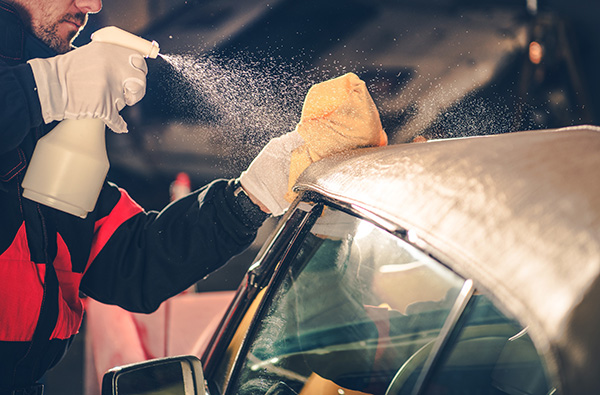
Keeping your car clean does more than just make it look nice—it protects the paint, preserves the interior, and even boosts your mood when you're behind the wheel. Whether you're prepping for a road trip or just trying to make your daily commute more pleasant, these tips will help keep your vehicle looking sharp both inside and out. Here are eight practical car cleaning tips that will leave your vehicle feeling fresh and well-cared-for. 1. Wash Your Car in the Shade Washing your car in direct sunlight might sound like a good way to speed up drying, but it can actually leave behind soap spots and streaks. When water dries too quickly, it leaves mineral deposits on the surface. Washing your car in the shade allows you more time to rinse and dry properly, which results in a cleaner finish and less work. 2. Use Two Buckets When Washing The two-bucket method—one for clean water and one for rinsing your sponge or mitt—helps red ... read more
Posted on 4/25/2025
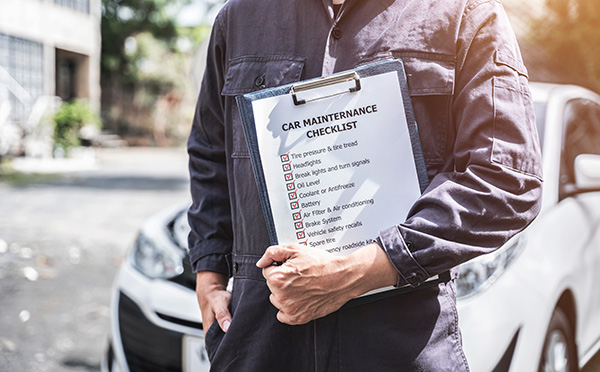
Winter driving can quietly wear your car down—salt buildup, pothole damage, and freezing temperatures all leave their mark. As the weather starts to warm up, spring is the ideal time to check in on your vehicle’s health. A seasonal inspection not only helps catch issues before they become expensive repairs, but it also ensures your car is ready for longer drives, changing road conditions, and rising temperatures ahead. After months of winter strain, a little maintenance now can go a long way in keeping things running smoothly. Check and Rotate Your Tires Tires are easy to overlook, but they’re one of the most important parts of spring maintenance. Cold weather can cause tire pressure to drop, and potholes or curb bumps may have thrown off your alignment or caused internal damage. Have your tires inspected for: Uneven wear Cracks or bulges Tread depth Proper air pressure A rotation might be all that’s needed to extend their life, but if wi ... read more